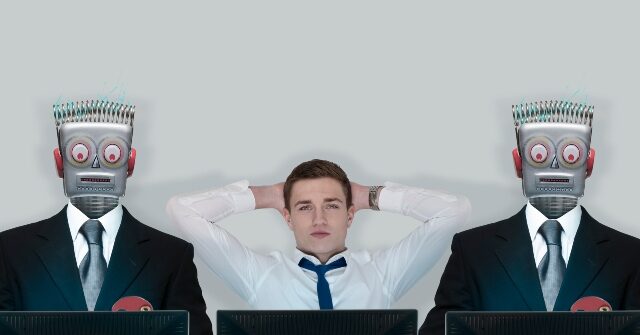A new analysis from Goldman Sachs points to Gen Z tech workers as the most vulnerable group in the ongoing wave of AI-driven disruption across the labor market.
Fortune reports that AI is rapidly changing the landscape of the tech industry, and according to a senior economist at Goldman Sachs, it’s young professionals — specifically those in Gen Z — who are feeling the brunt of these changes. Joseph Briggs, a senior global economist in Goldman’s research division, recently highlighted that unemployment among Gen Z workers in tech has increased at a rate outpacing both the broader tech sector and young workers in other industries.
On a recent episode of Goldman Sachs’ Exchanges podcast, Briggs explained that the unemployment rate for tech workers aged 20 to 30 has jumped by about three percent since the start of the year. This spike is notable, especially when compared to the overall unemployment trends within the sector and among young workers more generally. “This is a much larger increase than we’ve seen [in] the tech sector more broadly or a larger increase than we’ve seen for other young workers,” Briggs said.
The adoption of AI in the workplace, while still modest — Goldman Sachs estimates only about nine percent of companies have used AI regularly in production over the recent past — has coincided with a significant slowdown in tech hiring. Since the release of OpenAI’s ChatGPT, the industry has experienced a break from more than two decades of consistent job growth. Major tech companies such as Microsoft, Google, and Meta have collectively laid off nearly 30,000 employees as they pivot investments toward AI, further intensifying competition for available jobs.
The impact is especially pronounced at the entry level. Entry-level tech job postings in the U.S. have fallen by about 35 percent since January 2023, according to recent data. This contraction in opportunities has left many new graduates and early-career professionals struggling to find their footing. Nearly half of Gen Z job seekers in the U.S. now believe that AI has diminished the value of their college degrees, according to an April report from the World Economic Forum.
Breitbart News previously reported on AI’s threat to entry-level jobs based on industry data collected by the Wall Street Journal:
According to data from the Burning Glass Institute, the share of graduates in the labor force with a bachelor’s degree one year after graduation has dropped, deviating from historical patterns. The decline is not limited to a specific field — majors ranging from visual arts to engineering are feeling the pinch. Unemployment among recent college graduates is rising faster than for those with only a high school diploma or associate’s degree.
Employers are openly acknowledging the shift. At Chicago-based Hirewell, marketing clients have largely stopped requesting entry-level staff, opting instead for AI solutions. “Having a good job ‘guaranteed’ after college — I don’t think that’s an absolute truth today any more,” said Bill Balderaz, CEO of consulting firm Futurety, who chose not to hire a summer intern this year, preferring to use AI for social media tasks.
Briggs noted that while the aggregate effect of AI on young workers across all industries remains relatively small, the tech sector stands out as an exception. “If we start zeroing in and zooming in on these specific industries where we are seeing AI be used to drive efficiency gains, there are signs that headwinds are emerging there,” he said.
But AI is not the only factor at play. The current job market for young workers is characterized by what Briggs described as a “low-hiring, low-firing” environment. Recent college graduates are facing lagging hiring rates, with the unemployment rate among new grads rising to about 5.5 percent — roughly equivalent to the rate for young people without a college degree. For all workers aged 22 to 27, unemployment now stands at 6.9 percent.
Read more at Fortune here.
Lucas Nolan is a reporter for Breitbart News covering issues of free speech and online censorship.
Read the full article here



